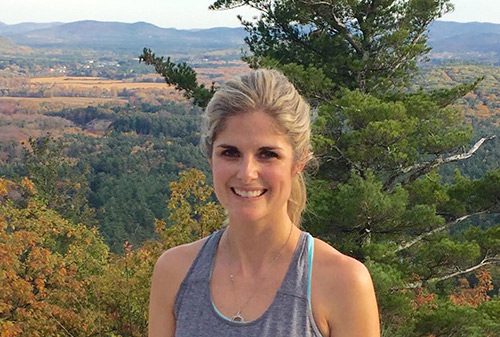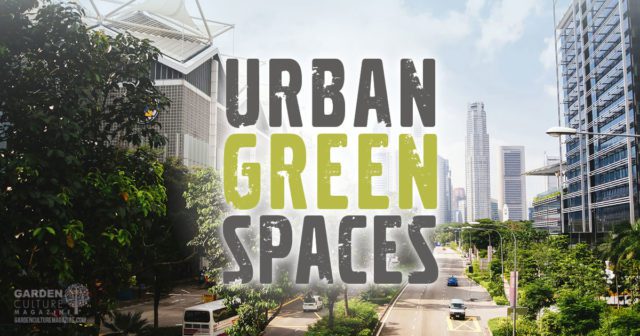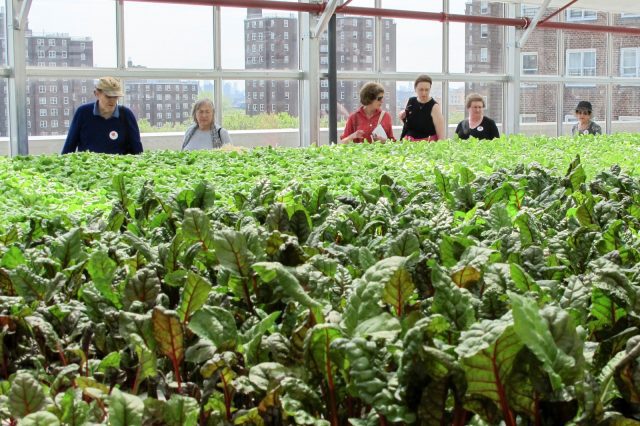Imagine if every one of our cities was bursting with urban farms? Fruit, vegetable, and flower crops growing in community gardens or raised beds and containers on every rooftop and balcony; that’s the dream. Experts say urban gardening might be a big piece of the puzzle in mitigating climate change.
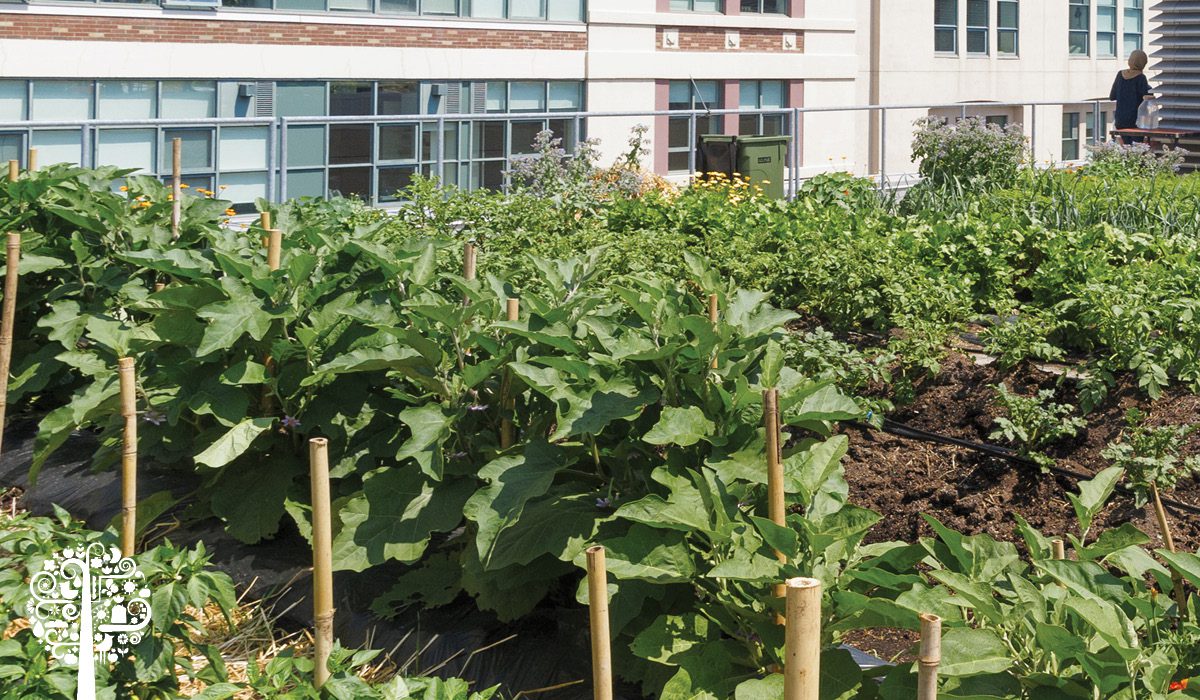
How Urban Gardening Helps
Greening up our cities can help us control and adapt to climate change in a few different ways.
- Locally grown food cuts down on food miles! The Worldwatch Institute estimates that the food on a typical American dinner plate travels 2,400 km before being eaten. Growing food crops in cities cuts down on transport-caused greenhouse gas emissions and provides fresher, more nutritious food to urbanites. It’s a win-win!
- Adding more greenspaces to cities supports biodiversity, something that isn’t exclusive to rural areas or forests. The world’s pollinators are in trouble; flowers, shrubs, trees, and food crops of all kinds give them food, shelter and attract many different species, including birds and other insects.
- More plant life means fewer pollutants in the atmosphere, but it can also help cities cope with another weather factor caused by climate change: severe flooding.
Urban Gardening and Flooding
A study currently underway at Ryerson University in Toronto, Canada, looks at rooftop farming’s potential to reduce the risk of severe flooding after heavy storms.
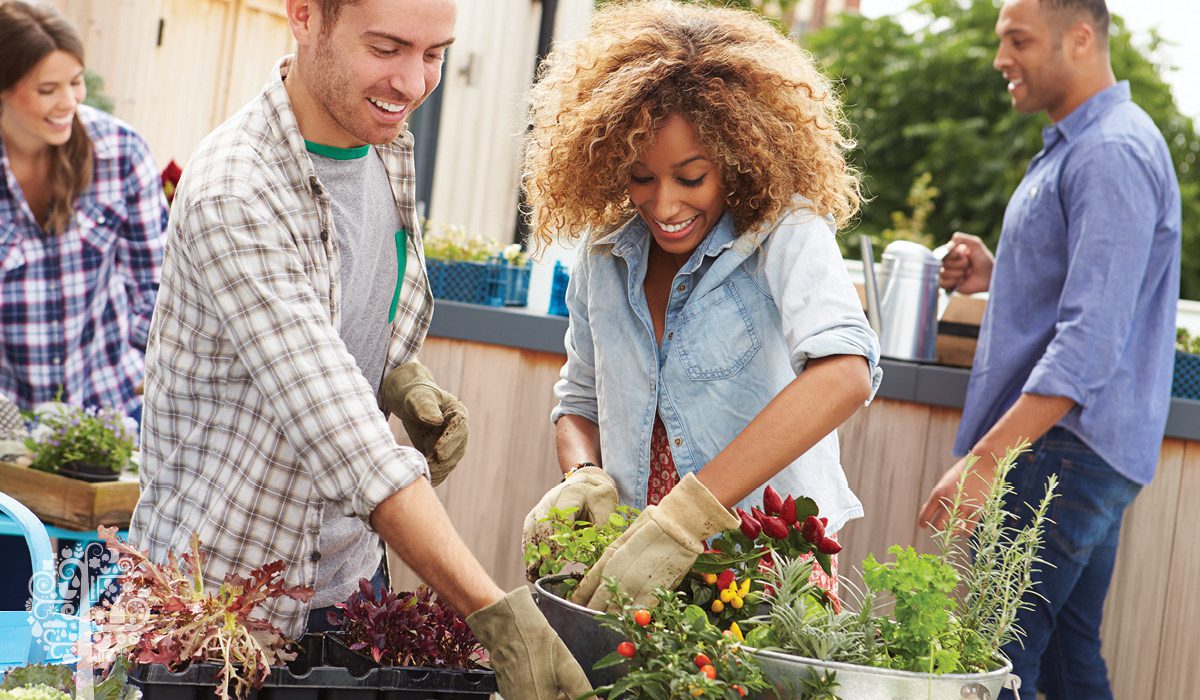
Researchers believe the more rooftop farms and gardens there are, the more water is retained in the crops, reducing pressure on sewer systems.
Urban areas have many rooftops and are largely covered with pavement and concrete, surfaces that can’t absorb heavy rainfall.
No matter how big or small, think of your garden as a sponge. When it rains, the plants and soil they’re growing in drink up the water and prevent it from running off to impenetrable surfaces below.
How Can We Help?
While not everyone has a rooftop available to grow their food, anyone with a balcony, small patio, or windowsill can join the urban gardening movement.
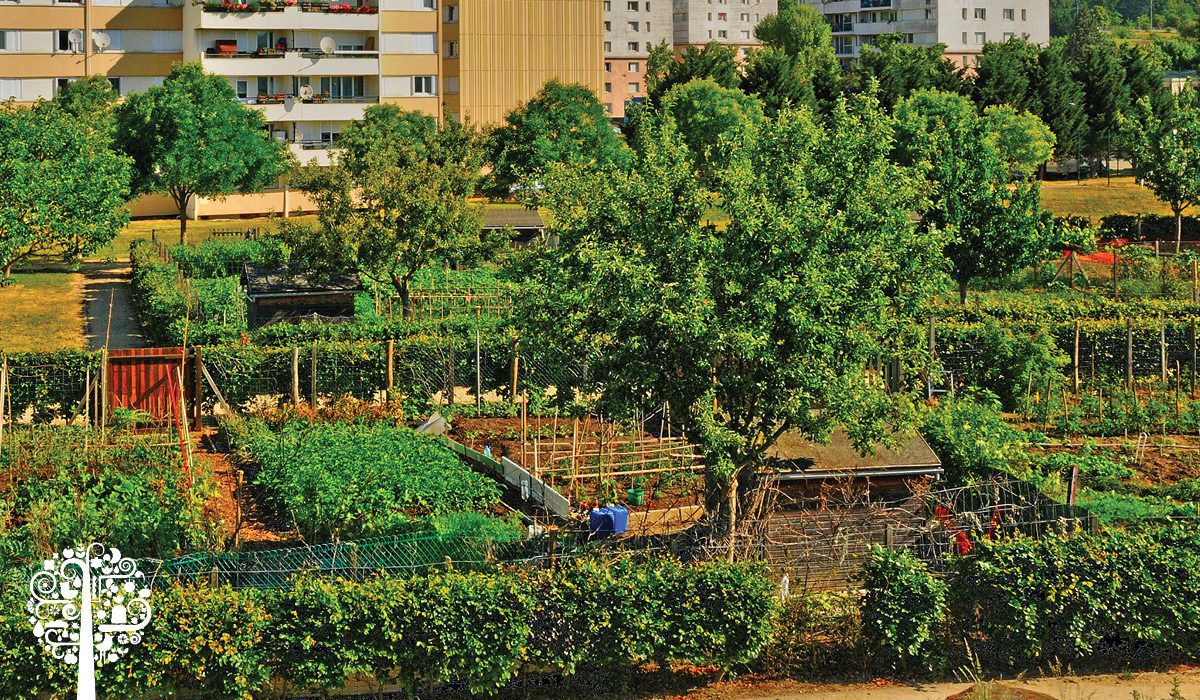
Not only will you have a supply of fresh herbs, fruits, and vegetables, but you’ll be helping encourage biodiversity and maybe even absorb water from heavy rainfalls.
Be a part of the change!

